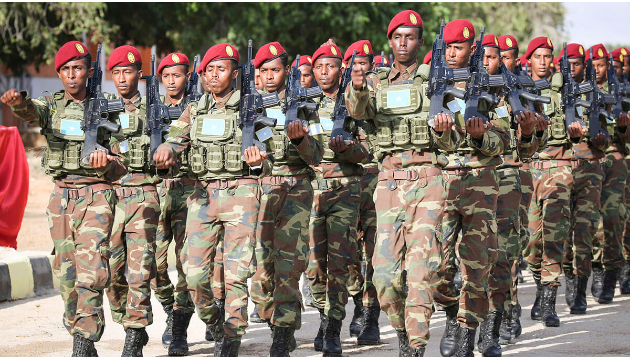
Tensions between Egypt and Ethiopia over the Grand Ethiopian Renaissance Dam (GERD) are spilling over into the Horn of Africa, raising concerns that the region could become a hotspot for new proxy wars. Both nations, locked in a years-long dispute over control of the Nile River’s water resources, are increasingly expanding their influence in neighboring countries, heightening the risk of external powers exploiting the situation to further their own interests.
The source of the hostilities between Egypt and Ethiopia lies in the construction of the GERD, a $4.6 billion hydroelectric dam on the Blue Nile. Ethiopia sees the project as a critical component of its development strategy, promising to provide much-needed electricity for millions of its citizens and boost its economy. However, Egypt, which relies on the Nile for about 90% of its freshwater, views the dam as an existential threat, fearing it will significantly reduce the flow of water downstream, especially during periods of drought.
Despite multiple rounds of negotiations mediated by regional and international bodies, including the African Union (AU) and the United Nations, the two countries have failed to reach a binding agreement on the dam’s operation. This stalemate has created a volatile atmosphere in the Horn of Africa, as both Egypt and Ethiopia seek to bolster their geopolitical influence to gain leverage in the dispute.
The Horn of Africa, a region already fraught with conflict and instability, has become the latest battleground for Egypt and Ethiopia’s competing interests. Ethiopia, which has long-standing ties with neighboring countries like Somalia and Eritrea, is attempting to strengthen these alliances to counter Egypt’s diplomatic moves. Addis Ababa has been actively engaging with Somalia’s government and military, aiming to secure its strategic position in the region.
On the other hand, Egypt has ramped up its efforts to deepen ties with Sudan, another key player in the Nile dispute. The two nations share concerns over the impact of the GERD on their water security, and Egypt has provided military and economic assistance to Sudan, further aligning their strategic interests. Additionally, Egypt has strengthened its relationships with other nations in the Horn, such as Djibouti, leveraging its financial and military aid to secure support.
Experts warn that these competing alliances may be laying the groundwork for future proxy wars, as regional conflicts and rivalries become intertwined with the broader Egypt-Ethiopia confrontation.
The involvement of external powers is also intensifying the risk of proxy wars. The Red Sea and the Horn of Africa have become key areas of interest for global players like the United States, China, Russia, and the Gulf states. These nations, driven by economic and strategic interests, are increasingly involving themselves in the region’s political dynamics.
Saudi Arabia and the United Arab Emirates (UAE) are particularly influential in this context, both having strong relationships with Egypt and a vested interest in the stability of the Red Sea corridor. The Gulf states have also provided significant investments in the Horn of Africa, making them crucial actors in the unfolding drama. At the same time, Turkey and Qatar have aligned more closely with Ethiopia and its allies, adding another layer of complexity to the situation.
Analysts caution that the rivalry between these external powers could exacerbate existing tensions, leading to a scenario where local conflicts are co-opted by global geopolitical interests, thus increasing the risk of prolonged proxy wars.
The potential for new proxy wars in the Horn of Africa would have devastating humanitarian consequences. The region is already grappling with multiple crises, including ongoing conflicts in Somalia, civil war in Ethiopia’s Tigray region, and political instability in Sudan. Millions of people are facing displacement, food insecurity, and a lack of basic services due to these overlapping crises.
Should Egypt and Ethiopia’s hostilities manifest in new proxy wars, the human toll would be enormous. The disruption of trade routes, refugee flows, and access to vital resources would deepen the region’s suffering, making it even harder for international organizations to provide humanitarian aid.
Additionally, the security implications of such proxy wars are immense. Regional stability could collapse under the weight of foreign-backed militias, fueling long-term violence and undermining peace efforts. The spread of arms and the involvement of various external actors with their competing agendas would make it even more difficult to resolve conflicts diplomatically.
The growing tension in the Horn of Africa has prompted renewed calls for diplomacy and mediation to prevent the situation from spiraling into open conflict. The African Union and the United Nations have both called on Egypt and Ethiopia to resolve their differences peacefully, urging both sides to return to the negotiating table.
There have been recent efforts to re-engage both nations in talks, with some analysts suggesting that a more inclusive, regionally led mediation process might help break the deadlock. Experts argue that resolving the GERD dispute requires a comprehensive approach that addresses not just water-sharing issues but also the broader geopolitical rivalries in the Horn of Africa.
However, time is running out. If Egypt and Ethiopia continue to escalate their hostilities, the region could soon find itself in the throes of a new round of proxy wars, with devastating consequences for millions of people already living in a highly fragile and unstable environment.
As Egypt and Ethiopia continue their geopolitical tug-of-war in the Horn of Africa, the region is at high risk of becoming a flashpoint for new proxy conflicts. The involvement of external powers and shifting alliances among local actors are heightening the stakes, making it imperative for the international community to prioritize diplomacy and conflict prevention.
The Horn of Africa, already beset by war and instability, cannot afford another layer of conflict. Without immediate action, the rivalries between Egypt and Ethiopia could lead to a protracted and devastating proxy war, with far-reaching consequences for the entire region.

